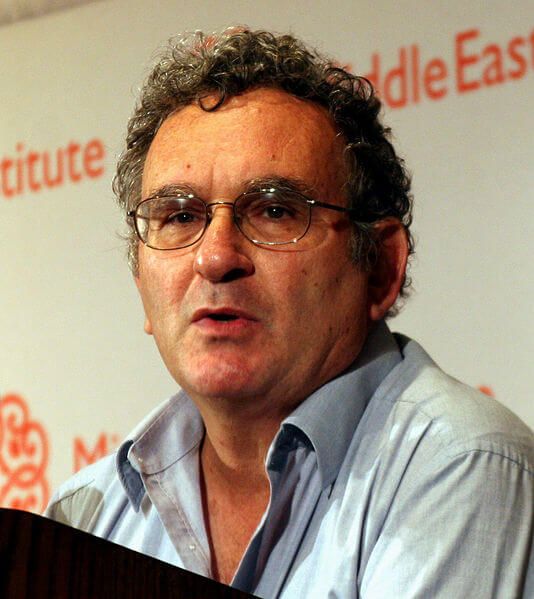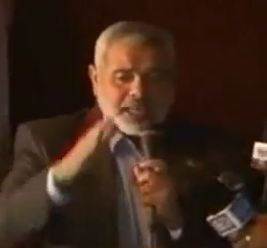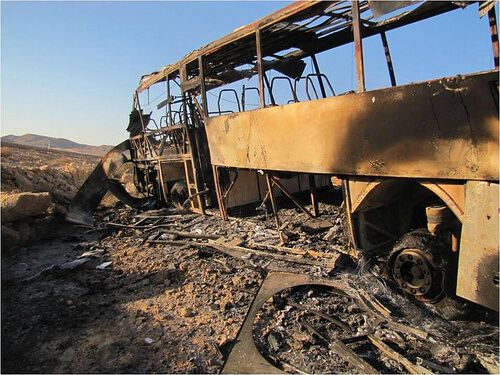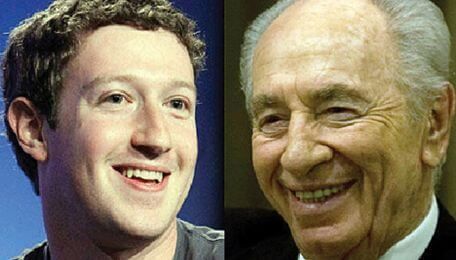 Everything you need to know about today’s media coverage of Israel and the Mideast.
Everything you need to know about today’s media coverage of Israel and the Mideast.
Benny Morris explains why you can’t compare Iranian and Israeli nuclear programs. Hamas publicly throws its support behind the Syrian opposition. And Shimon Peres gears up to launch an ambitious social media outreach plan.
Join the Media Cheat Sheet Page on Facebook.
Israel and the Palestinians
• Jackson Diehl explains how Mahmoud Abbas “punted” a promising peace parley. Memo to Globe & Mail columnist Shira Herzog: that is the real reason the Palestinians aren’t currently at the top of Israel’s agenda.
• Worth reading: Moshe Halbertal, a co-author of the IDF’s code on war ethics, discusses Israel’s challenges of fighting asymmetrical warfare.
• Good grief: Professor Avi Shlaim (The Spectator) draws some inappropriate comparisons between the Arab Spring and Israel’s social protest movement. Simply giving Arabs the right to vote without building respect for the rule of law, equality and individual rights, freedom of expression, etc. isn’t going to solve the Mideast’s problems.
• I must be suffering from “Palestinian Hunger Strike Fatigue.” Maan News picks up on the latest Khader Adnan wannabe, and I’m hardly interested. Been there, done that.
Iranian Atomic Urgency

• Benny Morris (LA Times) says you can’t compare Israeli and Iranian nukes:
There is a vital difference between a nuclear-armed Israel and a nuclear-armed Iran: The Iranian regime is bad. It assaulted and murdered its own people following President Mahmoud Ahmadinejad’s fraudulent reelection in 2009. It supports terrorists beyond its own borders, including against Israel. The regime is also mad; it has threatened Israel’s destruction.
But Israel, even when massively attacked by Syrian and Egyptian forces in 1973, has never used nuclear weapons, which it has had for more than 40 years. Israel has never threatened its neighbors with destruction. Though it may have a hawkish right-wing government in power, Israel has always been (and is now) run by rational, sane leaders who would never use nuclear weapons unless faced with apocalyptic circumstances.
Comparing the two countries — a democracy and a totalitarian theocratic dictatorship — is silly and smacks of moral relativism . . .
But once Iran develops its own atomic weapons, a nuclear war will surely follow — and not necessarily between Iran and Israel (though this confrontation is the most likely one). Iranian nuclearization will be followed in short order by nuclear proliferation across the Middle East.
• The UN Security Council condemned (unanimously!) attempted attacks on Israeli diplomats in India, Georgia and Thailand. Ambassador Ron Prosor told Haaretz it’s been seven years since the UN condemned terror against Israel.
 • The IAEA’s concerned about the unexplained disappearance of nearly 20 kilos of uranium from a Tehran research facility. Reuters writes:
• The IAEA’s concerned about the unexplained disappearance of nearly 20 kilos of uranium from a Tehran research facility. Reuters writes:
The discrepancy found at the research site in the Iranian capital came to light after measurements by international inspectors last year failed to match the amount declared by the laboratory.
Experts say the quantity of natural uranium not accounted for is too small to be used for a bomb, but that it could be relevant to weapons-linked tests.
• Haaretz:
Indian intelligence services have considerable evidence that Iran was behind this month’s New Delhi terrorist attack, but are not releasing it in a bid to avoid public confrontation with the Islamic republic, an Israeli security source says.
Arab Spring Winter
• Jonathan Spyer entered Syria to find out more about the Free Syrian Army. His dispatches in The Weekly Standard and Tablet are must-read. (Hat tip: Michael Totten).
• Asharq al-Awsat reports that the Free Syrian Army has rejected help from jihadists already in the country and refused to receive them.
The opposition “national council” hopes that more military personnel will defect from the regular army to help the free army confront the forces of Al-Assad and end the dictatorial rule in the country with Syrian hands.

• For the f irst time, Hamas publicly expressed support for the Syrian uprising. AP points out that the forum for Ismail Haniyeh’s remarks were just as noteworthy. He was giving a sermon at Egypt’s Al-Azhar Mosque:
Ismail Haniyeh said after Friday prayers at Egypt’s Al-Azhar Mosque that Hamas commends “the brave Syrian people that are moving toward democracy and reform.” . . .
Al-Azhar Mosque is the premier religious institution in the Sunni Muslim world and the platform given to Haniyeh was another show of support for Hamas.
Khaled Abu Toameh reacts:
Hamas’s declared policy was that the movement does not interfere in the internal affairs of Arab countries.
But for Hamas, Syria was not just another Arab country.
Syria was the only country that agreed to host Hamas leader Khaled Mashaal and some of his top aides after they were expelled from Jordan and stripped of their Jordanian citizenship more than a decade ago.
Syria’s decision to allow Hamas to set up base in Damascus was mainly designed to undermine the PLO, and not out of love for the Islamist movement or the Palestinians.
• A UN panel accuses Syria of crimes against humanity. See the NY Times and Reuters for more.
• The juxtaposition of these two headlines has a striking effect:
- Wounded Journalist Pleads for Evacuation From Homs
- Syria Not Responsible for Journalists Who Enter Country Illegally
• Professor Josh Landis predicts Bashar predicts Bashar Assad will survive the year.
• The Baltimore Sun pays tribute to the Syrian resistance’s success on the YouTube front.
• Bruce Reidel suggests Israel hand over the Golan to the Syrian opposition.
• How’s this for irony?
British journalists working for Iranian TV arrested in Libya
Rest O’ the Roundup
• Israel’s replacing a stretch of fence along the Lebanese border between Metulla and Kfar Kila with a 5-meter high wall, complete with surveillance and alarm systems. The Daily Star writes:
Serra added that the Lebanese Army had been informed of the technical details of Israel’s plans, and that UNIFIL would now work to ensure sufficient security measures were in place during the construction process.
And in the further hope that good fences make good neighbors, Israel’s re-opening Route 12 near Eilat for the first time since last year’s terror attack. Israel HaYom describes the measures taken to make the road more secure.

• You’ll be surprised to learn that Christian and Muslim supporters of Israel outnumber Jewish activists on North American campuses. The Times of Israel talked to the activists:
Acknowledging that a Muslim supporting Israel raises eyebrows, Hamdy says he considers himself Muslim and Western. Ticking off such things as human rights, equality for women and the Israeli government’s recognition of the gay community, he says, “Israel embodies those values which I consider to be central to the Western identity and civilization.”
• Mark Zuckerberg’s helping Shimon Peres give a special Friday launch for the Israeli president’s Facebook page. It’s part of an ambitious social media plan, which YNet describes:
The president is expected to set out for a visit to the US during which, on March 6, he will visit the Facebook headquarters in the Silicone Valley where he will meet with Facebook founder Mark Zuckerberg.
Peres will also give an interview which will be transmitted live on Facebook Live. Facebook members from around the world will get the opportunity to ask the president personal questions . . . .
Yet Peres’ cyber campaign doesn’t stop there. The President’s Residence noted that they are preparing to launch the project “Peres 360” which will see him becoming “available” 24 hours a day on Facebook, Twitter, Instagram, YouTube and the President’s Residence . . .
The social networks will be synchronized to allow maximum accessibility to the president’s activity in real time.

• JTA picks up on Israeli efforts to help Japanese tsunami victims deal with their psychological trauma:
“We’ve had Japanese social workers come here and talk to people, but they were not able to do what the Israelis have done. They immediately saw into our hearts. They definitely saw into mine.”
Media Matters
 • Check out AP‘s new logo.
• Check out AP‘s new logo.
• LA Times to launch paywall “membership program” on March 5. I assume that periodically deleting cookies will bypass this:
Starting March 5, online readers will be asked to buy a digital subscription at an initial rate of 99 cents for four weeks. Readers who do not subscribe will be able to read 15 stories in a 30-day period for free.
• According to NY Times public editor Arthur Brisbane, correcting errors isn’t always so simple.
(Image of Morris via Wikimedia Commons/Aude, uranium symbol via Wikimedia Commons/Klingoncowboy4, Haniyeh via YouTube/TheKeysToEternity, Zuckerberg and Peres via Facebook/President Shimon Peres)
For more, see Thursday’s Media Cheat Sheet.

